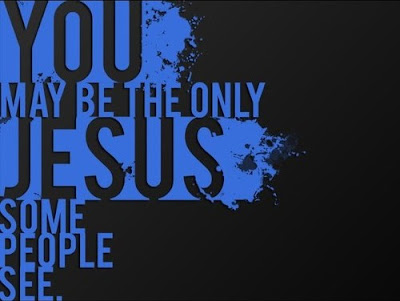The Feast of Dedication came on a cold winter day in Jerusalem. Families stayed indoors for warmth as the smoke from hundreds of wood fires hung in a gray layer and mingled with the dark rain-swollen clouds. In the early morning stillness of the city, Jesus went for a walk. A tranquil time for reflection and prayer. Protected from the morning’s drizzle, the Son of God quietly walked alone under the covered porch area on the east side of the temple. Providing shelter from winter weather and offering shade on a hot summer day, the enclosed porch known as “Solomon’s Colonnade,” ran the full length of the temple and was usually crowded with scribes giving lessons to their followers.
On this chilly winter morning, Jesus strolled through small groups of men scattered throughout the narrow area. Fully absorbed in His peaceful thoughts, He was oblivious to the murmurings and sharp looks. Then, stepping around a large pillar which supported the heavy roof, Jesus suddenly found Himself surrounded by the angry Jews!
Emboldened by each other. Uncertainties and fears hidden behind folds of cloaks drawn around their faces. Eyes darting around and unable to look Jesus in the eye. Contemptuous voices rising in pitch, the words coming loud and fast. Jesus stood silently and could feel their hearts – cold, hard, oozing with self-righteousness. He saw the large, heavy rocks in their rough, work-hardened hands. He looked calmly at each one of them and He waited. Then from the back of the crowd came a belligerent shout, “How long will you keep us in suspense? If you are the Messiah, tell us plainly!!”
Jesus had told them before. Plainly. Many times. And now, ready to stone the Messiah on the spot, the angry crowd would not be satisfied by mere words. They wanted proof and they wanted it now. But how could Jesus prove to these hostile religious leaders that He was indeed God? The Son of God told them that if they wanted to understand who He was, than they should look at what He had done. In essence, He told them to not look at His words but at His deeds. He said, “Don’t believe me unless I carry out my Father’s work. But if I do His work, believe in the evidence of the miraculous works I have done, even if you don’t believe me. Then you will know and understand that the Father is in me, and I am in the Father.” John 10:37-38 NLT
Just as those unbelievers were primed and ready to throw rocks at Jesus, the mockers, doubters and “woke” unbelievers today seem just as eager to “stone” His followers in the workplace, military, schools and in society. Hatred of Christians and anti-Christian bias has become so normalized among atheists, there’s even a name for it: Christianophobia.
We can so easily become discouraged by the growing anti-Christian backlash in America today. But, when we’re under attack, our response should be the same as our Lord’s, “Look at our works before you judge us!” So let’s stop for a moment and think about what this would mean if you actually did say that. Does this pause for thought create a little concern for you as it does for me?
If someone was attacking or mocking our Christian faith and we told them to look not at our words but at our works, what would they see? We once rented a church building from another church and I would occasionally visit with that congregation during their hospitality time. I heard blasphemies and the “F” word during their causal conversations. I heard a woman give witchcraft instructions to another and I overheard some of the filthiest sexual jokes I’d ever heard. Their hospitality time was just moments after their service ended and I’d wonder: if this was their behavior at church, what was it in their workplace and with unbelieving friends? Theologian and author Brennan Manning wrote: “The greatest single cause of atheism in the world today is Christians who acknowledge Jesus with their lips and walk out the door and deny Him by their lifestyle. That is what an unbelieving world simply finds unbelievable.”
How do non-Christian friends, co-workers, acquaintances, neighbors see you? Do they see tenderhearted mercy, kindness, humility, gentleness, patience, and self-control? Would they say that your devotion to God has radically changed your life or just made you more religious? Do others see by your behavior and words that the Spirit of the Living God resides within you? Do they see someone who more and more resembles Christ or do they see someone who more closely resembles the ugly side of themselves? When we tell others about our Christian faith, are they thinking that our faith must explain our good qualities? Or do they think: “If this is what Christianity looks like, I want no part of it!”
We need to live in such a way that people see the image of Jesus reflected within us. Because in today’s culture that’s growing more and more secular, you may be the only Jesus that some people will ever see.





